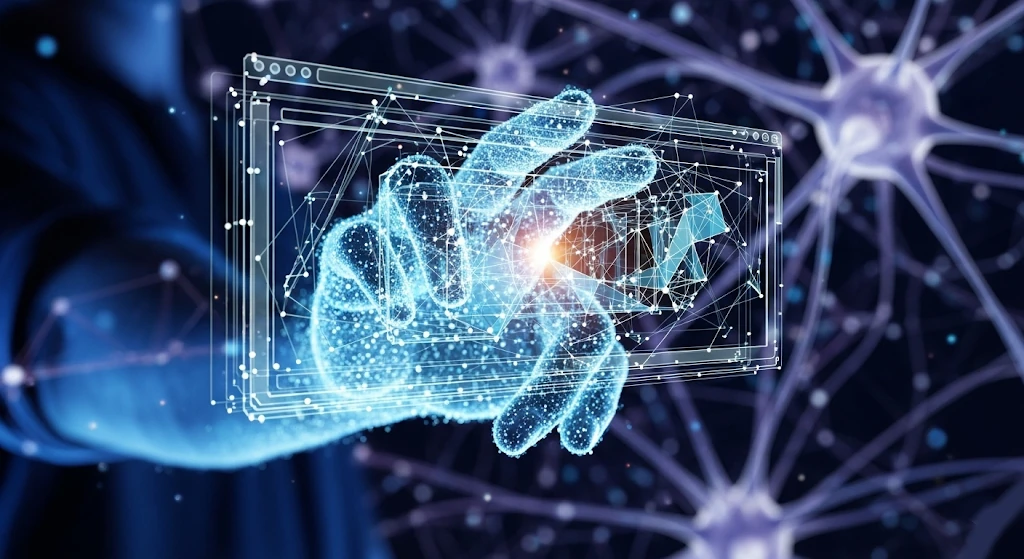
In recent years, the art and science of website development have undergone a profound transformation, mainly due to the increasingly pivotal role played by Artificial Intelligence (AI). As websites and online services become the primary face of most businesses and a crucial part of our daily lives, the focus on user experience (UX) has intensified. Crafting a seamless, intuitive, and engaging online presence is desirable— essential to a business’s success. This blog post will explore the intricate relationship between AI and website development, how it molds user experience, and the future of this exciting symbiosis.
Importance of User Experience in Website Development
In today’s digital world, a website is, more often than not, the first point of contact between a business and its potential customers. First impressions matter; studies show that 38% of people will stop engaging with a website if the content or layout is unattractive. It reveals how crucial a well-designed user experience is. A website that is not only visually appealing but also easy to navigate, quick to load, and accessible across various devices and platforms can be the difference between a thriving business and one that struggles to engage its audience.
The Role of AI in Enhancing User Experiences
AI is a game-changer for website development, offering tools and insights that were once unimaginable. With the aid of AI, developers and designers can transcend traditional boundaries and create user experiences that are hyper-personalized, interactive, and constantly evolving based on user feedback and behavior.
Understanding User Behavior
Analyzing User Data Using AI
For good reason, data has been referred to as the new oil frequently. Global data production is predicted to reach 463 exabytes per day by 2025, which is the same as 212,765,957 DVDs every day! AI is now essential for extracting and evaluating these enormous volumes of user data since it has access to such a plethora of information. Developers can identify what works and what doesn’t on their websites by using AI algorithms to decipher complicated use patterns and preferences.
Personalizing User Experiences Through AI
Personalization has become a buzzword in the industry, and understandably so. Consider studies suggesting that 80% of shoppers are more likely to buy from a company that offers personalized experiences. AI empowers developers to create websites that adapt to the user, display content, and provide tailor-made offers to individual actions and preferences, leading to a more engaging and satisfying experience.
Designing User-Centric Interfaces
Leveraging AI for Intuitive Interface Design
AI is not only transforming backend processes but is also revolutionizing frontend design. Through pattern recognition and machine learning, AI can help in the design of interfaces that are not just user-friendly but anticipate the needs of the user. Such proactive design can make navigation feel more natural and reduce the learning curve for new visitors.
Imagine a website that evolves dynamically, changing its interface in response to how people interact with it. This is no longer the realm of science fiction. With AI, websites can become living entities that adapt in real-time, improving the user experience based on continuous interaction.
Optimizing Performance with AI
Using AI for Website Performance Optimization
Speed and reliability are vital elements of user satisfaction. A mere 1-second delay in page response can result in a 7% reduction in conversions. AI algorithms are excellent at optimizing website performance, from image compression without quality loss to predicting and adjusting to traffic spikes to keep the website running smoothly. AI can analyze user engagement metrics, allowing developers to identify what captivates the audience. By understanding the content that performs well, creators can curate more of what their users love, thus keeping them engaged and reducing bounce rates.
Ethical Considerations
Adhering to Ethical Principles in AI-driven User Experiences
As AI becomes more deeply entrenched in the user experience, ethical considerations are paramount. Developing AI in a manner that respects user privacy, avoids bias, and promotes fairness is vital. It’s essential to establish moral guidelines to ensure that AI serves the users positively and inclusively. With AI’s incredible potential comes a responsibility to maintain transparency and provide user control. Users should be informed about how their data is being used and be given control over their personal information. Incorporating these principles builds trust and enhances the overall user experience.
Conclusion
In the field of website development, the marriage of AI and UX holds boundless potential. It encourages an ongoing exploration of how technology can be harnessed to design experiences that are more human in their understanding and responsiveness. As we move forward, the integration of AI in website development will no doubt continue to sculpt and redefine the horizons of user experience.
And so, like the sculptor who sees the form within the marble, developers and designers must envision the user experience that AI can help to unearth. The journey ahead is an exciting amalgamation of technology, creativity, and human insight, promising to redefine our digital landscapes in the years to come.


